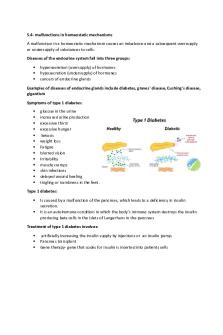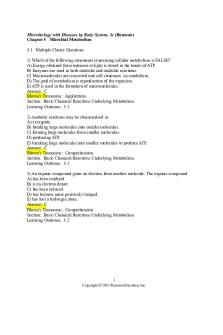Raquino EDUC148 UNIT3 Chapter 5 PDF

| Title | Raquino EDUC148 UNIT3 Chapter 5 |
|---|---|
| Author | Jaeffer Zhen Padasdao |
| Course | Biology |
| Institution | Mariano Marcos State University |
| Pages | 3 |
| File Size | 163.4 KB |
| File Type | |
| Total Downloads | 636 |
| Total Views | 694 |
Summary
JOHN RYAN H. RAQUINOBSE FILIPINO 3AUsing the graphic organizer, write words or phrases when you here the phrase “I’m not faking being sick. I’m actually faking being well.”“I’m not fakingbeing sick. I’mactually fakingbeing well.”“I’m not fakingbeing sick. I’mactually fakingbeing well.”Activating Pri...
Description
JOHN RYAN H. RAQUINO BSE FILIPINO 3A
Activating Prior Knowledge
Using the graphic organizer, write words or phrases when you here the phrase “I’m not faking being sick. I’m actually faking being well.”
Pretending that you are okay even if its not
Being sick doesn’t mean being well
“I’m not faking being sick. I’m actually faking being well.”
It is like developing our acting skills for a role we never asked to play
The desire of actually be well, but that’s not the current reality.
We might fake feelings but we can’t easily fake sickness.
Check for Understanding Answer the following questions briefly. 1. Define emotional disorder. Emotional disorder is a mental illness in which one's emotions are severely disturbed. This disorder is not due to any abnormalities in the brain development or function, but is associated with significant impairment in quality of life, productivity, and interpersonal functioning. 2. Describe the characteristics of learners with emotional disorder.
A lack of peer relationships due to fear or anxiety Poor attention span Low academic performance Impulsive behaviors Aggression toward self or others Poor coping skills and immaturity
3. Enumerate and describe the causes of emotional disorder. Hereditary factors- life event may be the catalyst to increase the risk of developing the mental illness, and as well as genes. Brain damage- no specific event is often enough to trigger an unexpected emotional response. However, there are increased chances that someone who has suffered a traumatic brain injury would have pains, despair, and mental or intellectual disorders. Malnutrition- nutrient deficiencies may increase the loss of neurons in your brain, affecting your speech, coordination, and memory. Physical illness or disability- disturbances in behavior and mood have been found to be caused or contributed to by illnesses or physical disabilities. 4. What are the different specifications of emotional disorder? Describe each briefly. Anxiety disorders- the term “anxiety disorder” is a broad term covering several different disabilities that share the core symptom of irrational fear. These include such different disorders as generalized anxiety disorder, panic disorder, etc. We all experience this from time to time, but for many people, including children, anxiety can be excessive, persistent, seemingly uncontrollable, and overwhelming. Bipolar disorder- a significant medical condition that causes mood fluctuations that range from extremely "high" and/or irritated to depressed and hopeless, and back again, with periods of normal mood in between. These changes in mood are accompanied by significant changes in energy and behavior.
Conduct disorder- it is referring to a variety of behavioral and emotional issues that affect children. This disorder makes it difficult for children and adolescents to follow rules and behave in a socially acceptable manner.
Eating disorders- extremes in eating behavior—either too much or too little—as well as emotions of excessive anxiety or concern over body weight or form are all symptoms of eating disorders. Females are far more prone to develop an eating issue than males. Obsessive Compulsive Disorder- it is a type of anxiety illness and it is marked by recurring, unwanted thoughts (obsessions) and/or repetitive activities (compulsions). Psychotic disorder- group of serious illnesses that affect the mind. Also, it is another umbrella term for serious mental disorders that create abnormal thoughts and perceptions.
...
Similar Free PDFs

Raquino EDUC148 UNIT3 Chapter 5
- 3 Pages

Unit3 - Lecture notes 3
- 14 Pages

SHS1102 General English-Unit3
- 40 Pages

Module 3 UNIT3 Exercises
- 7 Pages

UNIT3-Production Analysis
- 21 Pages

PH8151-unit3 - Lecture notes 3
- 13 Pages

Applications Exam Notes Unit3:4
- 4 Pages

Unit III notes - hci unit3 reg 13
- 37 Pages

Chapter 5 quiz #5
- 2 Pages

5 - chapter 5
- 3 Pages

Spm unit3 2019 pdf - Lecture notes 1
- 53 Pages

5 - chapter 5
- 4 Pages

SG Unit3 copy - Unit 3 SG
- 42 Pages

Chapter 5
- 19 Pages
Popular Institutions
- Tinajero National High School - Annex
- Politeknik Caltex Riau
- Yokohama City University
- SGT University
- University of Al-Qadisiyah
- Divine Word College of Vigan
- Techniek College Rotterdam
- Universidade de Santiago
- Universiti Teknologi MARA Cawangan Johor Kampus Pasir Gudang
- Poltekkes Kemenkes Yogyakarta
- Baguio City National High School
- Colegio san marcos
- preparatoria uno
- Centro de Bachillerato Tecnológico Industrial y de Servicios No. 107
- Dalian Maritime University
- Quang Trung Secondary School
- Colegio Tecnológico en Informática
- Corporación Regional de Educación Superior
- Grupo CEDVA
- Dar Al Uloom University
- Centro de Estudios Preuniversitarios de la Universidad Nacional de Ingeniería
- 上智大学
- Aakash International School, Nuna Majara
- San Felipe Neri Catholic School
- Kang Chiao International School - New Taipei City
- Misamis Occidental National High School
- Institución Educativa Escuela Normal Juan Ladrilleros
- Kolehiyo ng Pantukan
- Batanes State College
- Instituto Continental
- Sekolah Menengah Kejuruan Kesehatan Kaltara (Tarakan)
- Colegio de La Inmaculada Concepcion - Cebu

